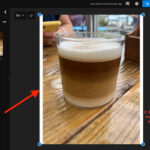Facebook may request photo ID for account verification if they suspect fraudulent activity. This raises concerns, especially considering Facebook’s history of data breaches. Why would a platform with such a track record ask for sensitive personal information?
Facebook states two primary reasons for requesting ID: confirming account ownership and verifying the user’s real name, a stated platform requirement, although not always adhered to by users.
There are two categories of acceptable identification. Group 1 includes standard documents like a birth certificate, driver’s license, passport, or green card. Group 2, for those lacking Group 1 documents, includes less secure options like a social security card, bank statement, or medical records.
Facebook assures users that uploaded IDs are encrypted and stored securely. However, recent security breaches have eroded public trust in Facebook’s security practices.
In 2018 alone, multiple incidents highlighted vulnerabilities. The Cambridge Analytica scandal exposed data from 87 million users. A security flaw compromised 50 million accounts, potentially allowing hackers access to personal data. Nearly 7 million users may have had unpublished photos exposed to third-party app developers. These events raise legitimate concerns about providing Facebook with sensitive identification.
If you suspect your Facebook account has been hacked, take immediate action. Change your password, report the hack to Facebook, and remove any suspicious applications. Inform your friends that any recent communication from your account might be from a hacker.
While Facebook claims to prioritize user security, its history suggests caution. Consider the risks before submitting your photo ID and explore alternative account recovery methods if possible. Regularly review your Facebook security settings and stay informed about potential threats.
